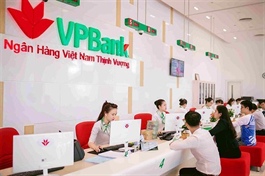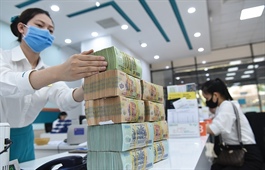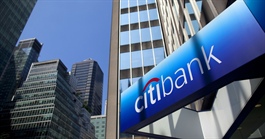Inspection rise in face of insurance hustle
Inspection rise in face of insurance hustle
Recent compulsory bundling of insurance policies with banking products despite customer unwillingness has triggered concerns over bancassurance activities in Vietnam, and as a result authorities are strengthening inspections of such rampant insurance cross-selling mechanisms.

Inspection rise in face of insurance hustle, illustration photo
|
Cross-selling of third-party products, particularly insurance services, was allegedly made mandatory in a few banks as part of conditions of their loans. Last week, the Ministry of Finance (MoF) sent a document requesting insurers to review and strengthen their inspection and supervision on bancassurance activities, thus co-ordinate with banks to promptly handle cases in which customers are being coerced into buying insurance, and to take measures to increase the rate of insurance contract maintenance.
“The MoF will closely cooperate with the State Bank of Vietnam (SBV) to revise policy mechanisms, and strengthen management and supervision of insurance sale activities of credit institutions’ agents,” the ministry said. “At the same time, the MoF will continue to strengthen inspection and supervision of bancassurance, ensure compliance with the law, increase high-quality training credit institutions’ employees to participate in insurance sale, and take measures to rectify and handle violations in a timely manner.”
In April, it was reported that Vietnam International Commercial Bank’s (VIB) Tay Ninh Branch forcibly sold insurance policies to customers as a compulsory part of the loans, even without their consent.
For example, with a loan package of VND200 million ($8,700), borrowers must purchase a life insurance package with minimum value equivalent to 10 per cent of the loan. Borrowers will enjoy the benefit of more preferential interest rate, as well as early disbursement within the next 3-5 days. Phan Hung Xuan, director of the Tay Ninh Branch, insisted that there was no such policy to force borrowers to participate in the insurance package.
Nguyen Xuan Hien, director of the SBV in the southwestern province of Tay Ninh, said, “We have received feedback from customers and hence issued Official Document No. 947/TNI-TTGSNH to rectify the insurance business and insurance agency activities of credit institutions in Tay Ninh province.”
However, there are some cases where banks have received complaints from policyholders on being forcibly purchased insurance policies by banks.
“According to customer feedback, the credit officer of VIB in Tay Ninh forced customers to buy life insurance when lending money which is not in accordance with the law on insurance business,” Hien said, noting that in the coming time, the SBV in the province will direct credit institutions to strictly comply with regulations on credit activities and insurance agency operations, and strictly handle violations.
According to the Vietnam Insurance Association, new insurance premium revenues through the bancassurance channel in 2019 accounted for 29 per cent of total new premium revenues, increasing from 10 per cent in 2016. In 2020, premium revenue from this channel continued to grow and accounted for more than 30 per cent of the total new premium revenue.
Last October, the SBV issued Document No.7928/NHNN-TTGSNH on regulating insurance business and insurance agency operations. Specifically, the SBV required banks to strictly abide by the regulations on insurance business. “Banks must not sell insurance forcefully to their customers. Any actions related to compulsory insurance in order to get loans are strictly prohibited,” the SBV noted. “In addition, bankers must thoroughly explain terms and conditions of insurance products to customers, and help customers to fully understand their rights and benefits.”
The SBV also asked commercial banks to disseminate the prevailing regulations on insurance business to their employees to avoid violations.
“Banks sit on mounds of customer data. However, bank staff are specifically trained to discharge banking services. Even insurance cross-selling mechanisms have been all the rage for the past few months, and not all bank staff have a thorough knowledge of insurance,” one industry insider told VIR. “In some branches, there is no specific due diligence based on the actual needs of customers.”
Bancassurance activities in Vietnam have witnessed an upward trajectory in the past few months, with both local and foreign insurers proactively expanding their bancassurance network by initiating tie-ups with lenders.
Along with some major exclusive bancassurance deals, such as VietinBank and Manulife, ACB and Sun Life, and Vietcombank with FWD, HDBank is now mulling over choosing a suitable insurance partner for the bank’s monopoly agreement. Many international life insurance companies have offered to cooperate with HDBank, but negotiations have stalled due to the pandemic.
Elsewhere, brokerage SSI Securities believed that the fee received from SunLife (around $370 million) has helped ACB reduce capital costs. According to SSI, ACB’s bancassurance performance in the first quarter of this year ranked second, after SCB, in terms of fee revenues.



























